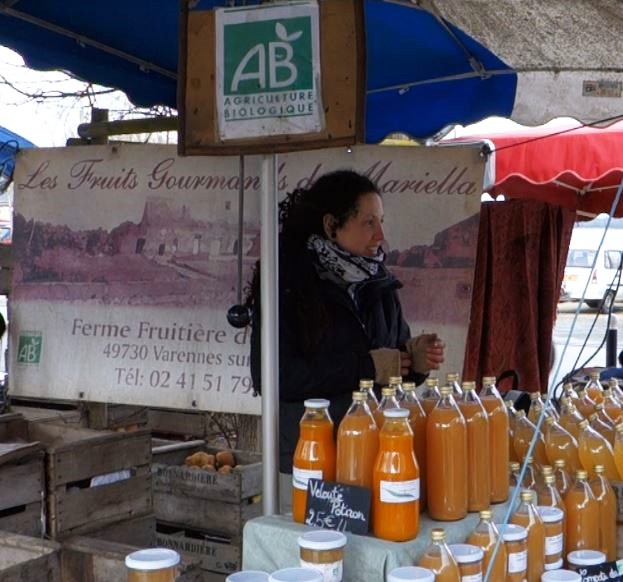
A pretty cold Sunday morning, we meet Aurélie at the small farmers’ market of Montsoreau, a little town on the banks of the Loire river in France, near Saumur. She’s smiling while selling apples, pears, raspberries and organics marmalades. She convinced many clients with more than six varieties of apples and pears. Even more with the new products she elaborated, apple compote or, we should say, apple “purée” (indeed the norms forbid her to say “compote” as she doesn’t add any sugar), many marmalades and jellies, delicious juices and organic eggs often out of stock.
Passion for animals
When you look at her movements it seems Aurélie has always been selling on markets, it’s hard to imagine that 3 years ago she was feeding lions, monkeys and parrots in a zoo. Passionate about animals, she has always loved being with them daily. After high school she naturally chooses a professional career in animal caregiving. She works for 4 years in a zoo but quickly finds out the limits of her job. Human climate is quite toxic and she hasn’t any perspective of evolution.
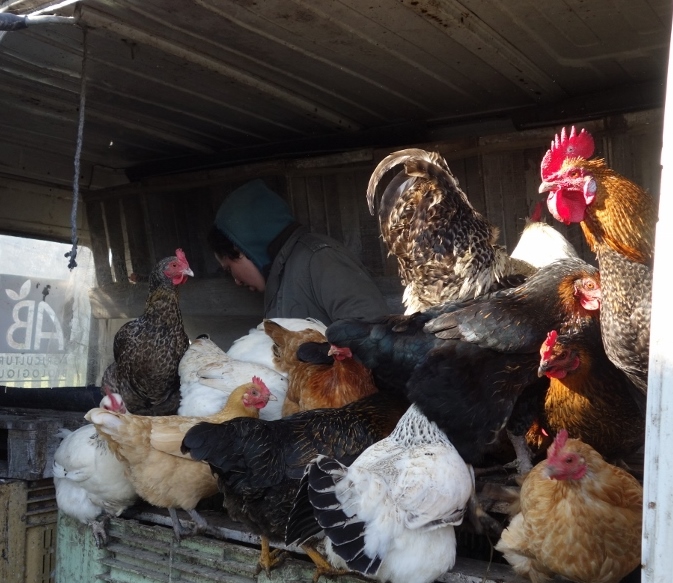
Her companion Jerome, a farmer who owns 20 hectares of apples and pears on a rented land grown organically, precisely seeks to expand his business by inserting animals, but has no time to spare. Therefore, Aurélie decides to work as his partner on the farm in May 2012 to develop a breeding activity.
She chooses not to ask for the state financial aid for young farmers. Indeed, not having the qualifications required to obtain the subsidies, in this case a BPREA (Professional Diploma as Agricultural Operations Manager), she should have followed at least one year of training in particular as regards the distribution and marketing when she could already benefit from Jerome’s sales channel. Moreover, accepting the aid implies to constantly show your credentials and make substantial investments; "An investment of EUR 10 000 is not enough for them. I'd still have asked the aid if I had not had Jerome. If you have neither land nor money, you have no choice but to ask for the aid, many people I know who have requested it are generally unhappy."
Piano, piano...
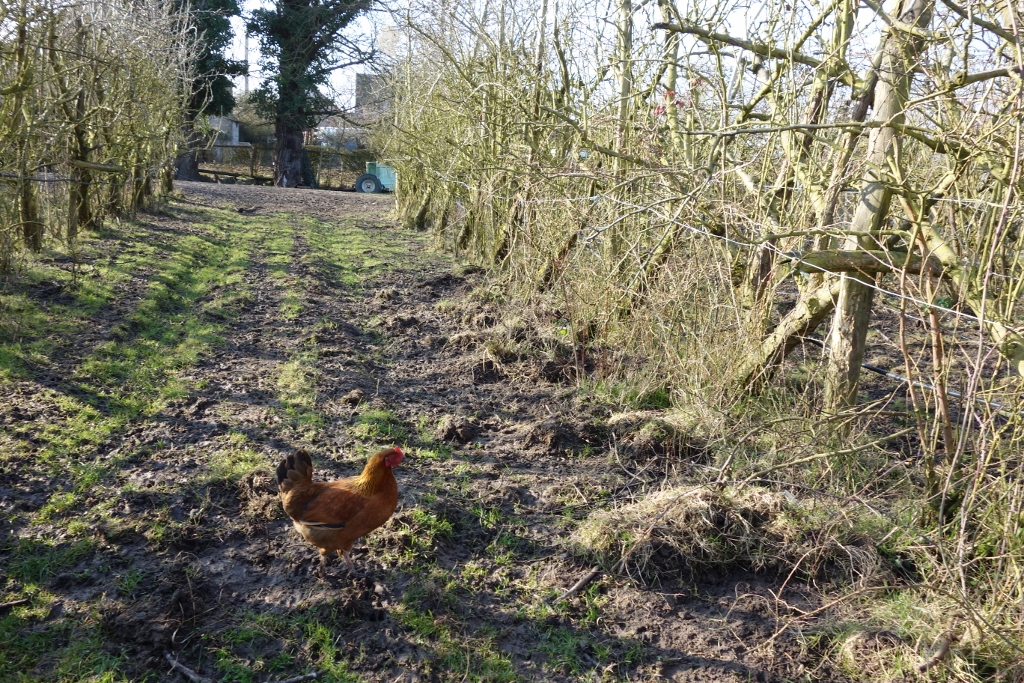
Without money to invest, the development of Aurélie’s project is very slow, especially as she also helps Jerome with the fruits. Doesn’t matter, she is ready to take her time because she doesn’t want to follow the conventional agricultural model of large investments for quick return. She keeps in sight the things that are important to her, including preserving animal welfare "When your vet costs are higher than what brings you a goat you can be forced to make choices that are not coherent with your beliefs. In my case, as the breeding business is not one that makes us live, I take my time to develop a model in line with my values although it is totally opposed to the traditional model. A counselor of the Chamber of Agriculture told me she did not know anyone like me, to them I'm not a real farmer." Aurélie starts her business with the advice of an associative network of consulting and accounting. An advisor of the Chamber of Agriculture makes the effort to seek appropriate information for her project and provides her documents concerning the laying hens.
Aurélie knows the stress and sacrifices entailed to taking care of animals every day. This would never make her give up! She starts slowly in amateur, buys some hens to insert them as beneficiary organisms. Yes, hens are very useful in orchards, they scratch the ground to eat the moth larvae (this pest is Cydia pomonella in Latin) while fertilizing the soil with their droppings. It's a virtuous circle because the protein intake from the larvae stimulates egg laying.
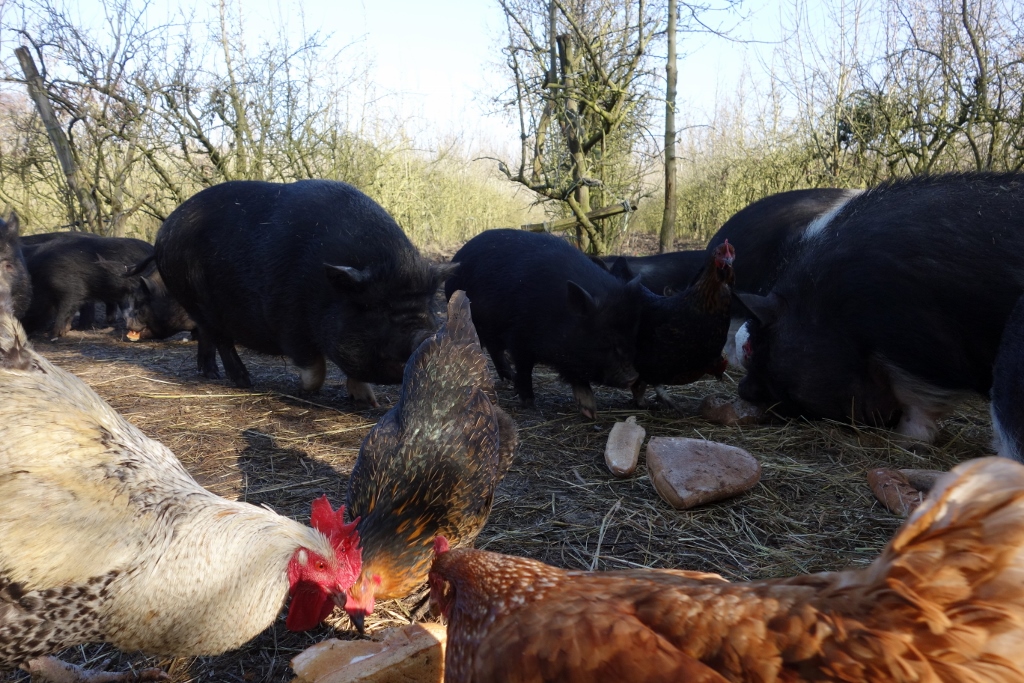
Aurélie introduced Chinese pigs to give a hand to the hens to dig deeper (Be careful do not leave them too long on the same plot if you do not want to end up with a battle field worthy of the trenches of World War I!). She modifies old vans into mobile hen houses to move them from plot to plot. With this innovation, orchards are healthier. She sells the eggs and products processed from vegetables from her small vegetable garden; "What I want is to take care of my chickens as individuals, but also include them in a professional structure." The barn is constructed of recycling equipment.
Agriculteur, more than a career, a way of life
The feeding and the reproduction of her animals are really important to her, her former profession allows her to know their nutritional needs and their coupling mode, she elaborates a seed-based preparation that germinated, with nettles, bran and residues of milling [see box]. She feeds them twice a day, in the morning when they go out and at night when they return, always in the same place so that they locate the henhouse and get used to come back to it. The food in the evening is indispensable as the egg is formed overnight. "An egg contains 2.3 grams of calcium, to make it the hen needs the double amount per day otherwise it is removed from its skeleton and it may weaken. Ideally, it is necessary that a hen has access to 4.6 g of calcium per day. For this, I give them crushed oyster shells." She wants to follow her hens throughout their cycle; she will build a space dedicated to the reproduction in the existing building: "Often poultry farmers do not assist the reproduction of their hens, they just get rid of them when they don’t lay enough eggs and they feed them with low cost imported soybeans from Brazil and nutritious super foods." However, regarding the felling, a building that respects the norms is essential and Aurélie cannot build it without financial aid. Another option would be to sell live animals, but very few people are willing to buy them, apart from a few customers in the countryside.
Today, Aurélie is fully aware that being a farmer is a way of life, there is no frontier between professional and private life. Her family who’s from a factory workers background does not relate to her farming activity but is not an obstacle for her: 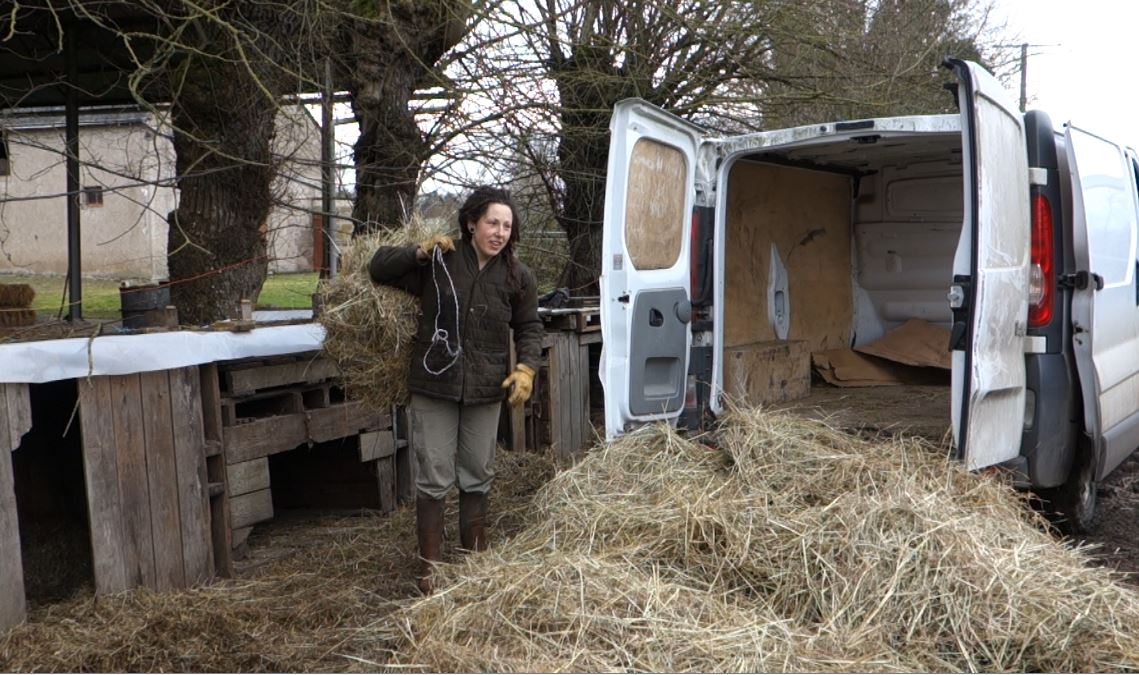 "My mother told me when I was a teenager that I would end up with a farmer; then I pictured the big hillbilly with boots full of smelly manure! ". She lost some of her friends but others accepted her new way of life and even help her sometimes on the farm.
"My mother told me when I was a teenager that I would end up with a farmer; then I pictured the big hillbilly with boots full of smelly manure! ". She lost some of her friends but others accepted her new way of life and even help her sometimes on the farm.
Regarding the contact with other farmers in the area, it is almost nonexistent but cordial. "Jerome has long been perceived as a crazy man because he was the only one to choose organic farming twenty years ago. All those who said that his project wouldn’t be viable eventually were bought out by the cooperative. Jerome makes a living on his farm and is independent." Aurélie was warmly welcomed in the farmer’s markets where Jerome was already known, she never misses breakfast at Montsoreau’s coffee bar with her colleagues in the early hours of the morning before the first guests arrive.
Aurélie’s piece of advice
“Always challenge yourself, do not rest on your laurels, you reinvent everything, there is no protocol, you need to fail to learn and innovate.”
"When you work with a partner, make sure to take the time to talk about joint projects and personal projects to avoid misunderstandings that can weaken the whole, both your couple and your farm. You must know how to balance, do not get carried away by passion, there is always something to do and it can isolate you from your family and friends. "
"Combining animal and plant production is very interesting, but you really need the project to be carried by an arborist (or other) and a breeder for it to work. "
A home made recipe Aurélie's hens are fond of
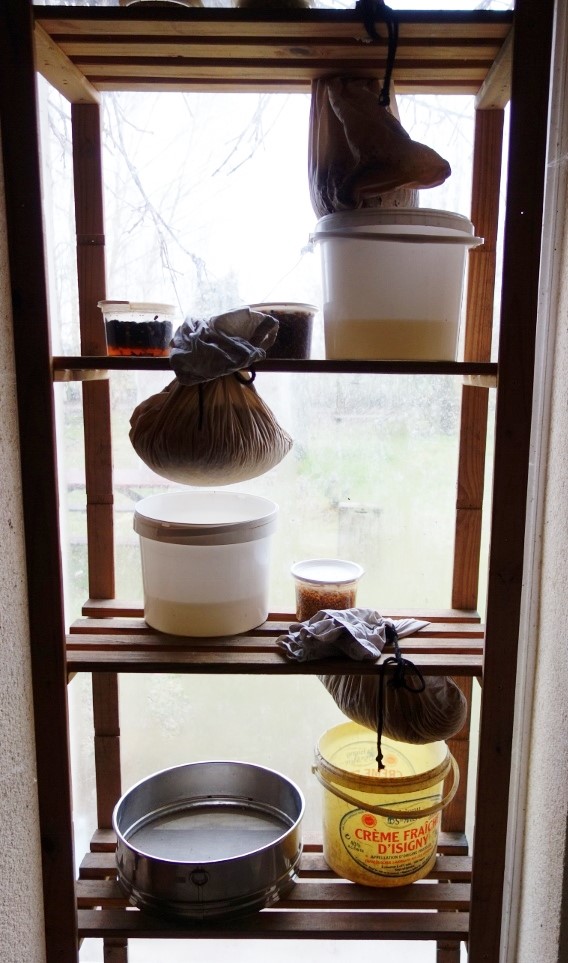 Hens and many animals much better assimilate the seeds when they’re germinated (it helps to put a lot less for the same benefits). To germinate the seeds, you will simply need to find a canvas bag. Soak the seeds a few hours, rinse and let them drain into the bag in the sun for a day. The next day, soak the bag in water and drain it again in the sun. Repeat the operation on the third day. That's it, that's sprouted!
Hens and many animals much better assimilate the seeds when they’re germinated (it helps to put a lot less for the same benefits). To germinate the seeds, you will simply need to find a canvas bag. Soak the seeds a few hours, rinse and let them drain into the bag in the sun for a day. The next day, soak the bag in water and drain it again in the sun. Repeat the operation on the third day. That's it, that's sprouted!
Regarding the composition of the seeds to germinate for hens: three quarters of the diet consist of organic products, crushed bran and wheat bran, then in equal quantity, peas (for protein), sunflower, oat and barley. Only wheat is better than nothing. Avoid giving your hens corn because it makes them too fat. This is mixed with a nettle infusion to ensure the proper functioning of organs and joints.
You will obtain a wet dough that your hens are going to love. You must prepare the recipe daily because it ferments quickly and can expire.
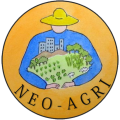
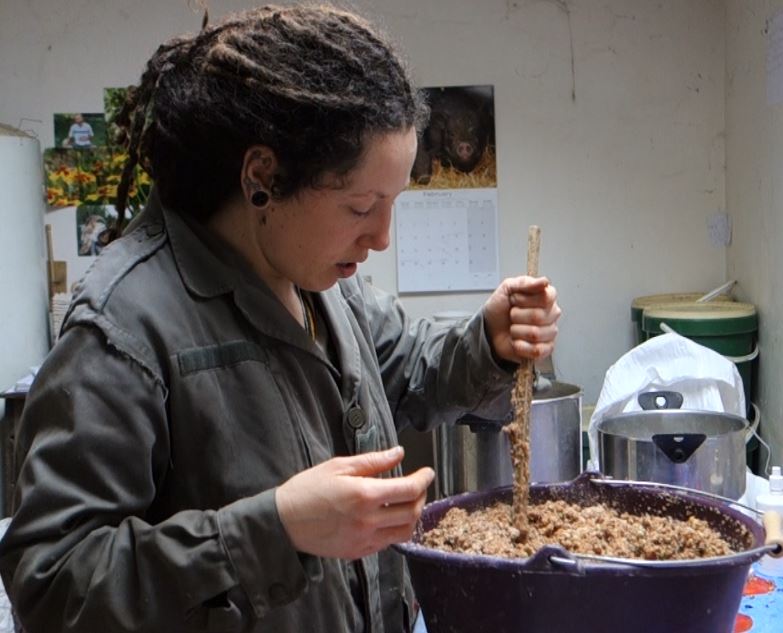
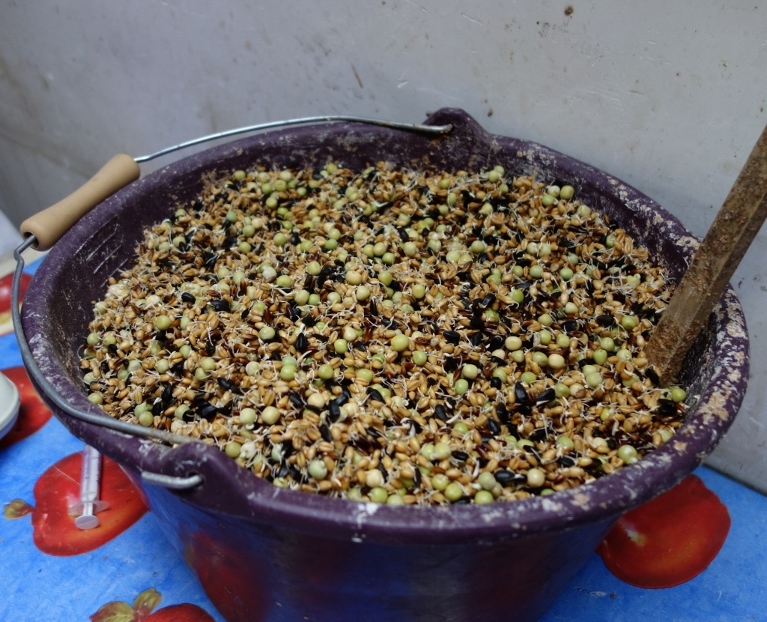
No Comments Yet